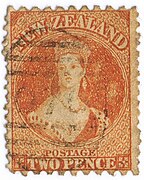vignette
Appearance
See also: Vignette
English
[edit]Etymology
[edit]First attested in 1751. From French vignette, diminutive of vigne (“vine”), from Latin vīnea, from vīnum (“wine”). Replaced earlier Middle English vynet.
Pronunciation
[edit]Noun
[edit]vignette (plural vignettes)
- (architecture) A running ornament consisting of leaves and tendrils, used in Gothic architecture.
- (printing) A decorative design, originally representing vine branches or tendrils, at the head of a chapter, of a manuscript or printed book, or in a similar position.
- 2011, William Burgwinkle, Nicholas Hammond, Emma Wilson, The Cambridge History of French Literature, Cambridge University Press, →ISBN, page 420:
- The centrality of this particular trope can been seen in the vignette adorning the opening page of Denis Diderot and Jean le Rond d'Alembert's Encyclopédie, ou dictionnaire raisonnée des sciences, des arts et des métiers (1751–1752).
- (by extension) Any small borderless picture in a book, especially an engraving, photograph, or the like, which vanishes gradually at the edge.
- (by extension) A short story or anecdote that presents a scene or tableau, or paints a picture.
- Synonyms: account, anecdote, depiction, portrayal, representation
- 2007, Peter Charles Taylor, John Wallace, Contemporary Qualitative Research, Springer Science & Business Media, →ISBN, page 126:
- A particular classroom incident, and the vignette I used to portray it, had a significant impact on the interpretative framework for my research into scientific literacy.
- 2019 March 1, Marina Hyde, “Chris Grayling is the Berk du Soleil as Farage maps out a road to nowhere”, in The Guardian[1]:
- I have two favourite vignettes from the voting lobbies on Wednesday night. The first is the news that one minister told the Tory chief whip, Julian Smith: “You don’t know what you’re doing,” to which Smith replied, “I do know what I’m doing”.
- (philately) The central pictorial image on a postage stamp.
- 1967, Postage Stamps of the United States, U.S. Government Printing Office:
- At the top of the stamp and centered slightly to the right is the wording, “U. S. Postage,” in white Gothic. Below the vignette are the words, “Little White House,” in quotations, with “Warm Springs,” centered directly below in dark Gothic, […]
- (photography) The characteristic of a camera lens, either by deficiency in design or by mismatch of the lens with the film format, that produces an image smaller than the film's frame with a crudely focused border. Photographers may deliberately choose this characteristic for a special effect.
- (photography) Any effect in a photographic picture where qualities vanish towards the edges.
- (computer graphics) A hardware deficiency (even occurring in most expensive models) of a computer display wherein the picture slants towards a colour or brightness towards the edges especially if viewed from an angle.
- (automotive) A small sticker affixed to a vehicle windscreen to indicate that tolls have been paid.
Derived terms
[edit]Gallery
[edit]-
ornamental vignette (architecture)
-
vignette of a headpiece (printing)
-
engraved vignette
-
central pictorial image (philately)
-
vignette (photography)
-
vignette (road tax sticker)
Translations
[edit]running ornament used in Gothic architecture
decorative design at the head of a chapter, of a manuscript or printed book
|
small borderless picture in a book
short story
|
small picture on a postage stamp
photography: the characteristic of a camera lens
|
computer graphics: a slanting screen
small sticker affixed to a vehicle windscreen
- The translations below need to be checked and inserted above into the appropriate translation tables. See instructions at Wiktionary:Entry layout § Translations.
Verb
[edit]vignette (third-person singular simple present vignettes, present participle vignetting, simple past and past participle vignetted)
- To make, as an engraving or a photograph, with a border or edge gradually fading away.
- 1922, T. E. Lawrence, Seven Pillars of Wisdom[2], Book Five, Chapter 68:
- Long minutes afterwards the sun disclosed itself, high above the earth's rim, over a vignetted bank of edgeless mist.
- 1937, Robert Byron, “Saoma”, in The Road to Oxiana[3]:
- Along the wainscot lie heaps of bolsters and quilts, covered with old-fashioned chintzes. Before the War these chintzes were specially made in Russia for the Central Asian market: one bolster depicts steamships, early motor-cars, and the first aeroplane, vignetted in circles of flowers on a vermilion background.
Derived terms
[edit]Further reading
[edit] vignette (graphic design) on Wikipedia.Wikipedia
vignette (graphic design) on Wikipedia.Wikipedia  vignette (literature) on Wikipedia.Wikipedia
vignette (literature) on Wikipedia.Wikipedia  vignette (philately) on Wikipedia.Wikipedia
vignette (philately) on Wikipedia.Wikipedia  vignette (photography) on Wikipedia.Wikipedia
vignette (photography) on Wikipedia.Wikipedia  vignette (road tax) on Wikipedia.Wikipedia
vignette (road tax) on Wikipedia.Wikipedia  Vignette in the Encyclopædia Britannica (11th edition, 1911)
Vignette in the Encyclopædia Britannica (11th edition, 1911)
French
[edit]Etymology
[edit]Pronunciation
[edit]Noun
[edit]vignette f (plural vignettes)
Descendants
[edit]Further reading
[edit]- “vignette”, in Trésor de la langue française informatisé [Digitized Treasury of the French Language], 2012.
Italian
[edit]Noun
[edit]vignette f
Categories:
- English terms borrowed from French
- English terms derived from French
- English terms derived from Latin
- English 2-syllable words
- English terms with IPA pronunciation
- English terms with audio pronunciation
- Rhymes:English/ɛt
- Rhymes:English/ɛt/2 syllables
- English lemmas
- English nouns
- English countable nouns
- en:Architecture
- en:Printing
- English terms with quotations
- en:Philately
- en:Photography
- en:Computer graphics
- en:Automotive
- English verbs
- French terms suffixed with -ette
- French 2-syllable words
- French terms with IPA pronunciation
- French terms with audio pronunciation
- French lemmas
- French nouns
- French countable nouns
- French feminine nouns
- Italian non-lemma forms
- Italian noun forms






